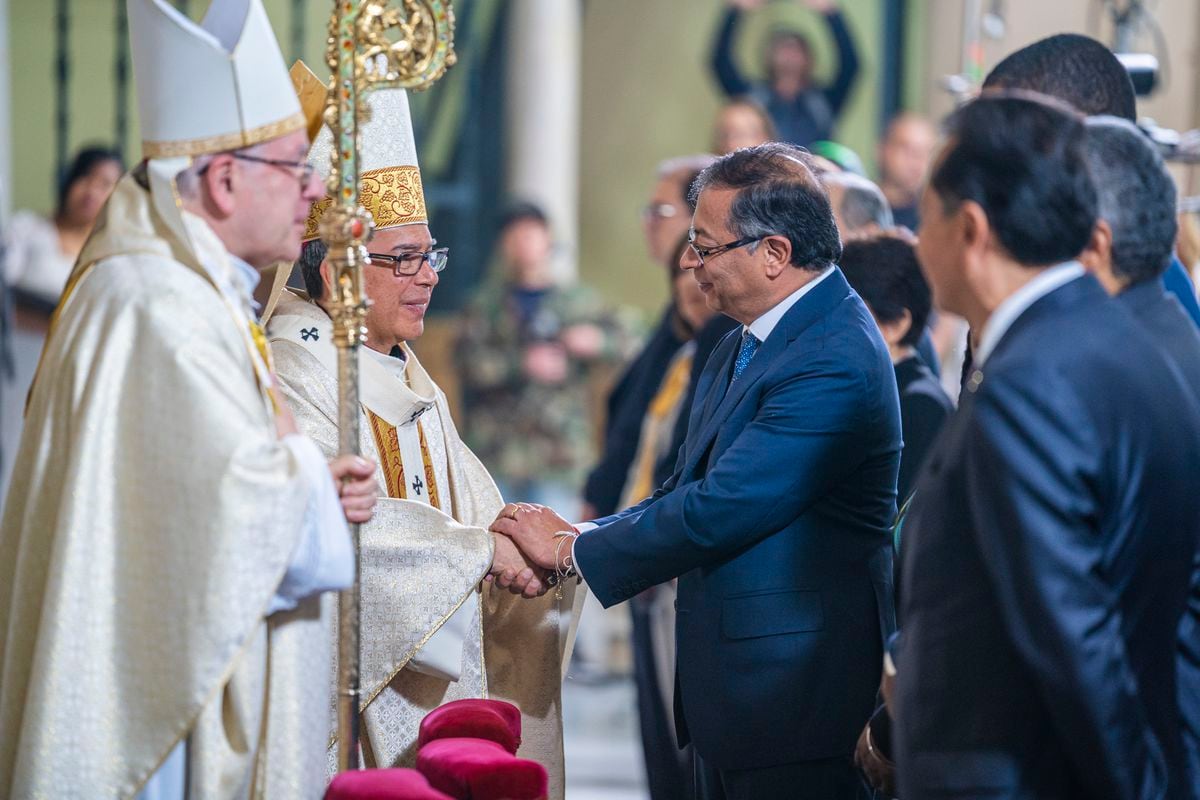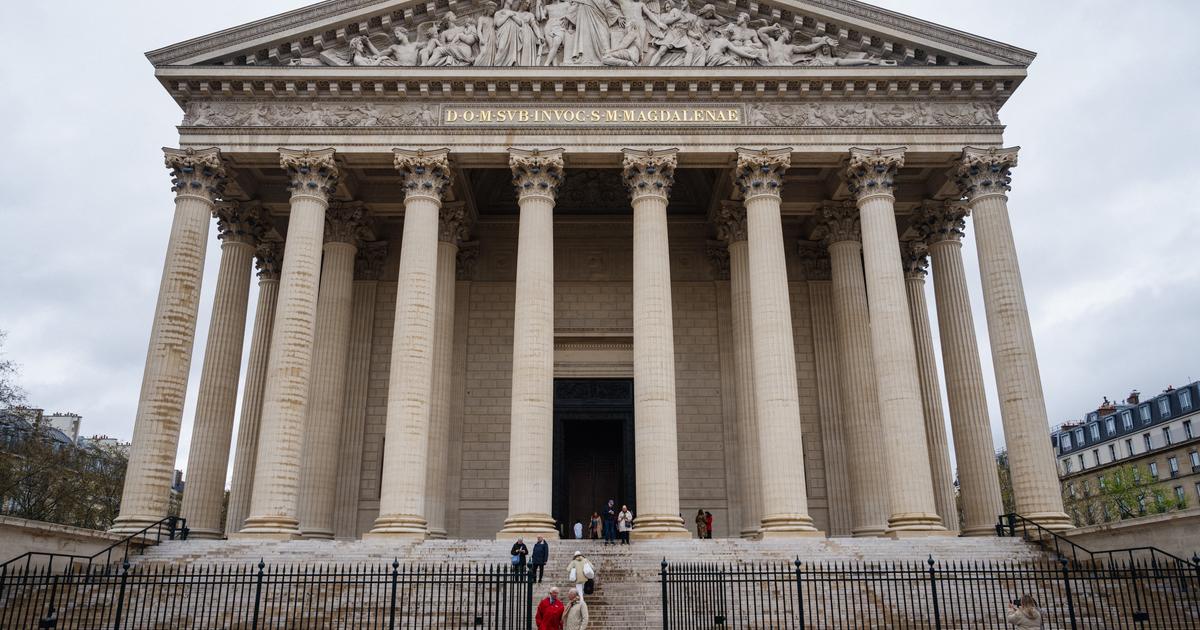I was not surprised that the church tax fell from the tax reform, but it did happen with the shameful complicity of that party that calls itself liberal.
Ana Bejarano is right in her column from a few weeks ago when she talks about blackmail, because that is what took place in our tricky congress, and she is right in pointing out the grotesque lobbying, and she is right in suggesting that curious paradox of history: the The party that threatened to withdraw its support for the reform if the tax was passed on the churches – if millionaire churches were forced to do what all citizens do: collaborate with the functioning of the society in which they exist – is the same party who barely eighty years ago was persecuted by so many priests from their pulpits and from the press,
with the most extremists even calling for violence to put an end to “liberal atheism”: because liberalism was a sin.
Of course, it cannot be said that the story does not have a sense of irony.
These recently created churches –thousands appear every year, or request permission to do so– have become essential spaces for many to live together, and that is fine and very respectable, but the issue of taxes would have to put the issue on the table. Old conversation about the difficult relationship between religion and politics.
Well, pastors are not only present in congress to avoid compliance with the obligations that others have, but also to shape the public policies that define the way in which the rest of us live: they intervene to oppose the legalization of drugs, to the right of women to abort (even in cases of rape or risk of death), to homosexual marriage.
Last May I spoke in this column about the too close relationship that the Historical Pact had with Alfredo Saade,
the openly homophobic pastor who has attacked the right to abortion and has opined that removing religious chairs in the classroom is running the risk of moral degradation.
It seemed naive to me, to say the least, to believe that the millions of votes that Saade would bring would come without consequences.
Now it seems naive to me to think that the fall in the tax will be the last of them.
The political role of these churches is growing and more present.
That is part of the same conversation, although sometimes it doesn't seem like it, or even though many want to pretend that it isn't.
But the churches bring votes to the parties because the pastors openly proselytize, and that, the politicization of the faith, is occurring throughout the American continent.
Like so many of the cultural phenomena that mark our time, this has part of its roots in the United States, where decades ago evangelical churches declared war on secularism, or, to put it better, mistakenly convinced themselves that secularism had declared them war on believers
Cultural disputes – the slow changes in mentality of a society that little by little is giving more rights to more people – did not seem to be on their side at all:
and thus they came to the conclusion that secularism was not, as its defenders believe, the neutrality of the State towards all religions, but rather an attack against religion –not all, but their own– on behalf of the State.
And they decided to move into activism in a way that our societies had never known.
In an article in
The Atlantic
, Tim Alberta, son of a Michigan pastor, tells the case of one of those evangelical churches, which in 2020 went from receiving a hundred faithful to having more than 1,500, each one happy to contribute their money.
What happened at that time, what reasons explain the explosion of popularity?
Very simple: the pastor began using his microphone to suggest that vaccines are harmful, that the left wants to ban God and that the elections had been stolen.
Of course: political activism is not what it used to be.
Social networks have changed it;
the way of exercising it has changed;
The springs that move emotions and votes have changed, and the ways in which those votes and those emotions can be manipulated with deceit or lies.
The churches, by conviction or cunning,
they have become promoters of conspiracy theories and false news, and have discovered an inexhaustible vein in the vulnerability of those faithful who need them so much.
It is enough to frame any issue in terms of persecution or attack –against values, against the family– to awaken a foolproof political fidelity.
She spent in Colombia in 2016;
It happened in Brazil in the last elections.
The method has not been different.
For months, Bolsonaro in general and Flavio Bolsonaro in particular dedicated themselves tirelessly to spreading the conviction that Lula, if he came to power, would close the churches and ban the Christian faith.
Shortly before the elections, a survey revealed that 57% of Bolsonaro evangelicals believed that this was going to happen.
Other churches, such as Reborn of Christ, accused the left of destroying the family.
(But this is the moderate: according to some pastors, Lula had dealings with the devil. And this was not a metaphor.) In Colombia, as you will remember, the pastors united to convince their faithful to vote against the peace accords. , and some of their arguments are already part of the national history of infamy: that the agreements, with their gender ideology, were going to make children homosexual;
that the agreements –again– were going to destroy the Christian family.
Later we learned that a group of pastors visited Santos with the confession that they had never read the agreements: they simply believed what Attorney Alejandro Ordóñez told them, a proven case of intolerance and fanaticism.
Every society is a constant negotiation, and it is normal and desirable that its sectors defend opposing interests;
and I, who am an atheist, want a society in which everyone can have the God they want and practice their faith as they want.
What is not desirable – sorry for the truism, but we are at that point – is that some pastors lie, distort, misinform and deceive;
What is not normal is that some churches exploit their growing political power, or take advantage of the ascendancy they have over believers in good faith, to exchange votes for privileges or perks.
And what is downright shameful, of course, is that political parties lend themselves to barter.
There are many conquests that the secular and pluralist society has achieved in recent years.
You will forgive me if sometimes it seems to me that there, in the congress,
Subscribe here
to the EL PAÍS newsletter on Colombia and receive all the latest information on the country.









